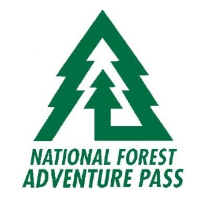Federal Judge Takes a Chunk out of Forest Service Fees in California

Just in time for the summer hiking season, U.S. District Judge Terry Hatter entered the final judgment in a case (pdf) that blows up a 17-year policy of charging fees to enter national forest areas.
Judge Hatter ruled in April that the National Forest Adventure Pass program improperly charges people who are on federal property―hiking, biking or otherwise recreating―but aren’t using “developed facilities and services.” The ruling applies to the Angeles, Cleveland, Los Padres and San Bernardino national forests in California.
The fees are still in effect, but the U.S. Forest Service has to figure out a way to separate the two types of park users. Hiring additional personnel and reconfiguring parking areas is probably not in the cards for a cash-strapped government agency that turned to a fee policy in 1997. A daily pass costs $5 and an annual pass is $30.
Hatter’s ruling stepped through the history of the Adventure Pass, starting with Congressional passage in 1996 of a pilot program to see how the public would respond to paying a fee for recreational access to federal lands and waters.
The public hated it.
City, county and state governments aggressively opposed the fees, arguing that it was a form of double-taxation, was a special burden on low-income citizens and represented a commercialization of public lands.
Amendments to limit the pilot program failed as Congress continued to periodically renew it. But eventually, lawmakers refused to renew the law and passed a new statute in its stead that was the subject of the lawsuit decided by Judge Hatter.
Four California hikers filed their suit shortly after a similar ruling by the U.S. Ninth Circuit Court of Appeals in February 2012, which involved Coronado National Forest in Arizona, was ignored by the Forest Service in California.
Judge Hatter said the law clearly states, “While the Forest Service is authorized to charge visitors an ‘amenity fee’ for use of developed facilities and services, it may not simply charge an ‘entrance fee’ to an area when visitors do not use those developed facilities and services.”
People who use a picnic table for lunch or relieve themselves in a restroom pay the fee, while those who dine on a blanket spread across the ground and answer nature’s call in natural surroundings do not.
The practical ramifications of this ruling remain unclear. No one is a winner if the Forest Service responds by closing access to areas it can’t afford to properly administer. According to the Forest Service website, it is already “proposing to eliminate fee area designations for 23 locations and reduce the boundaries for the rest” in California.
Hatter’s decision can be appealed.
–Ken Broder
To Learn More:
Court Decision Puts U.S. Forest Service’s Adventure Pass Program in Jeopardy (by Steve Scauzillo, San Gabriel Valley Tribune)
Judge Rules against Forest Service Fees in Southern California (by Bettina Boxall, Los Angeles Times)
Fragosa et al v. U.S. Forest Service (U.S. District Court for the Central District of California Western Division) (pdf)
- Top Stories
- Controversies
- Where is the Money Going?
- California and the Nation
- Appointments and Resignations
- Unusual News
- Latest News
- California Forbids U.S. Immigration Agents from Pretending to be Police
- California Lawmakers Urged to Strip “Self-Dealing” Tax Board of Its Duties
- Big Oil’s Grip on California
- Santa Cruz Police See Homeland Security Betrayal in Use of Gang Roundup as Cover for Immigration Raid
- Oil Companies Face Deadline to Stop Polluting California Groundwater





